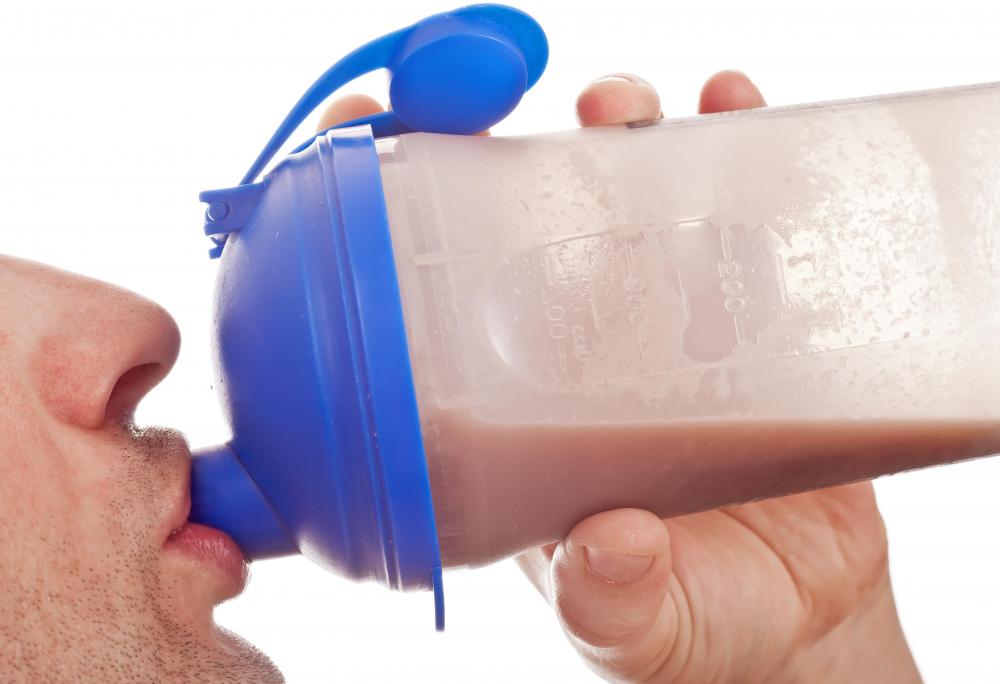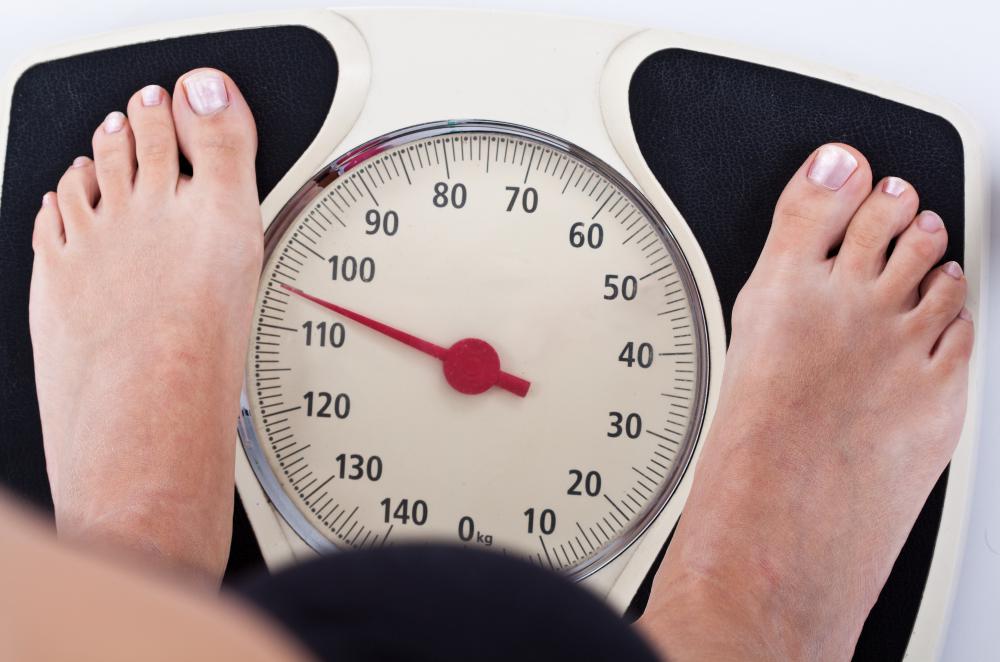At WiseGEEK, we're committed to delivering accurate, trustworthy information. Our expert-authored content is rigorously fact-checked and sourced from credible authorities. Discover how we uphold the highest standards in providing you with reliable knowledge.
What is a Meal Replacement Diet?
A meal replacement diet is a common weight loss strategy in which a person substitutes a meal with a special food bar, protein shake, or another form of liquid sustenance for one or two regular meals each day. Originally, athletes used meal replacement bars and shakes as energy boosters, but today’s meal replacement items are different from simple energy bars. They are usually intended to provide a certain number of calories, as well as important nutrients that make for adequate, safe, daily nutrition. Following a meal replacement diet can have advantages and disadvantages, so someone considering it should research the available options and consult a medical professional for advice.
Typically, someone who chooses to follow a meal replacement diet selects one of the many options available on the market today. The instructions usually include replacing breakfast, and sometimes lunch, with a meal replacement drink or cereal bar. The dieter usually eats a healthy, regular meal for dinner, which may contain around 600 or 700 calories. Following this type of plan often results in a total daily intake of 1,200 calories or less, which can be sufficient to promote significant weight loss in many people.

One advantage of a meal replacement diet is that it can be used for short-term weight loss. In other words, once someone has reached his or her weight loss goal, he or she may return to eating regular meals. In addition, meal replacement can be a convenient option for busy people. This is, in large part, because a meal replacement protein shake is relatively simple and quick to make, and a meal replacement bar is generally portable and easy to eat on the move. Servings of these foods are typically controlled in terms of calories and portion size. Therefore, a dieter often does not have to put much thought or time into planning his or her meals.

Some nutritionists acknowledge that an occasional meal replacement bar or shake can be part of a successful weight loss plan, if it contains sufficient nutrients. They also recognize that it can be convenient for someone on the go. Nevertheless, many professionals suggest that a bar or drink should contain about 230 calories and five or fewer grams of fat. Nutrition experts also tend to recommend that these items feature three to five grams of fiber and 10 to 15 grams of protein per serving.
There are some disadvantages associated with a meal replacement diet. Like some other "lose weight quick" plans, meal replacement alone probably does little to educate people about nutrition, and help them form healthy, long-term eating habits. In addition, such a diet often has little variety, so the selection of flavors of shakes or bars may be limited. Meal replacement products can also be expensive, when compared to other grocery items. For all of these reasons, someone considering a meal replacement diet may choose to seek professional guidance regarding realistic weight loss options.
AS FEATURED ON:
AS FEATURED ON:












Discussion Comments
The problem I have with most meal replacement diet plans is that a lot of that lost weight returns once you stop drinking the shakes or eating the diet meal replacement bars and return to regular food. In my case, I started eating healthier food after stopping my liquid meal replacement diet, and I was close to my original weight in a matter of months. It was very discouraging.
I still believe some quick weight loss diets work for short-term goals, like fitting into a wedding dress or looking better at a class reunion, but those meal replacement diet shakes don't always help with cravings. I started missing the pleasure of eating real food after drinking nothing but diet meal replacement shakes. I only drink one now as a quick breakfast if I'm in a hurry.
I followed a meal replacement diet for about six months before my 30th high school reunion. I didn't want my classmates noticing my middle age spread, and I also wanted to wear a tailored suit that fit me better. I drank a special shake for breakfast and lunch, then ate something like a salad or a piece of baked chicken and vegetables for dinner. I can say it was a challenge to turn down lunch invitations from co-workers and drink my diet meal replacement shakes at my desk instead.
I didn't lose quite as much weight as I had hoped on this liquid meal replacement diet, but I did lose some inches around my waist. Eventually I added more exercise to the mix and found I had enough energy for a workout if I drank the right kind of meal replacement diet shakes ahead of time.
Post your comments